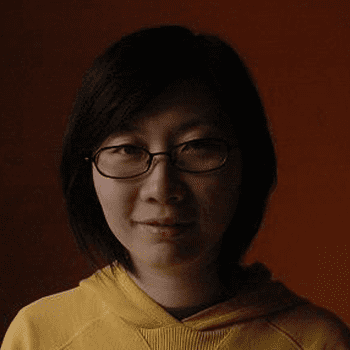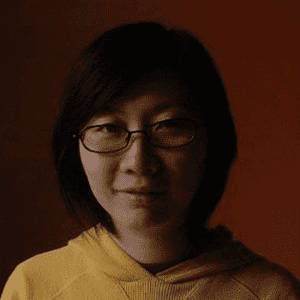Prior to the Diaspora Dialogues’ long-form mentorship, I had a mentorship during university, where I met a writer/editor several times. The format was more of an informational interview rather than working on a manuscript. I was also less familiar with the field then. Compared to that mentorship, the DD program was more targeted towards what I was specifically seeking: critical feedback on my writing.
My mentor Elizabeth Ruth and I sent material back and forth every few weeks. We did not have a set schedule or deadline for submissions until shortly before the end of the program. I expected some of the feedback that I received: comments on what was and wasn’t working, line edits, confusing passages. Elizabeth also asked broader, more open-ended questions on my intentions for the story, characterization, and developing and completing stories. Elizabeth was very warm at our meeting; it was great to meet her and hear about her experiences publishing her novels. I do really appreciate her feedback, especially critiques. She was very encouraging as well; I tend to focus on critical comments more because that’s what I need to work on.
Title of Work: (Untitled Story Collection)
Genre: Short Story
Mentor: Elizabeth Ruth
Between the first draft of the collection and submission to the program, most of the stories in the collection were read by my writers’ group. I then edited until I was completely sick of them. My second drafts had a bit of expansion and line revisions, but they don’t look significantly different. No major changes. (I did and am still considering them, however!) Perhaps this is because I didn’t have ready answers to some of Elizabeth’s questions, or because I tend to fall on the too-brief side of the divide rather than the too-obvious.
What I’ve noticed from writing this collection is that I write instinctively and focus heavily on lines and figurative language. I see that I need to pay attention to the big-picture elements, such as pacing and momentum.
Writing can be an isolating process. To have a mentor is to open up the echo chamber. Their experience, support, and critical eye can be crucial for a new writer. My suggestion for future mentees is to set up a schedule with due dates and expected return dates. (One of my emails fell through the cracks and it took us a while to realize this.) Since the end of the mentorship, I’ve been rewriting and sending stories to magazines. Slow going so far.
Of my stories, “English” is a favourite. I know the main character well: her strength reminds me of women I know and admire. People are cast into these awful, ridiculous predicaments, but there’s also dignity and humour within.
Personal or family experiences are embedded in the stories and have shaped some altogether. I would say that the personal is often the seed for writing, not the target.
When a story is not anchored to a place, it then happens in a fantastic setting where anything can happen. Places give context to characters; they make the story possible. I haven’t written characters based on people I know; I model settings exclusively on places I know. This has nothing to do with whether the place is named in the story. An anytown that is truly anonymous to me might as well be the Twilight Zone, and whatever happens there takes on surreal qualities.
Success and morality are recurring themes in my writing. There is no winning without losing, both in the sense of others losing out on limited resources and oneself losing particular values, experiences, fears. I’ve met very few people who feel safe, no matter their level of success. I mean success in whatever way people define it for themselves, whether it is career advancement, material gains, self-actualization, acknowledgement by one’s peers, etc. My characters are arguably ascending in their respective settings, and they’re getting the opportunity to make decisions that betray the values they hold (or were taught to hold). They’re challenged to consider what makes a good life and what they’re willing to sacrifice for the good life.
I’m also interested in how structural innovation can shape stories. I may have an underlying map in mind for a story. In one story, it’s the river that flows onward and becomes greater until it meets the sea, as the protagonist leaves her village, her city, her country.
When I say “innovation,” I am thinking in particular of John McPhee’s take on structure. He works from outlines, where roman numerals or capital letters stand for major sections, and index cards, with one component per card. I did learn this system in high school, like he did, though I’ve not applied it often. I loosely outline at times and plan to try more rigorous outlining. Plus, one way to solve the constant problem of how to end a story is to know the end before you get to writing.
In terms of other writing projects I have on the go, there are a few story ideas that have been biding their time. I’m also triaging the notes that have amassed in the past few years, to develop into essays.


